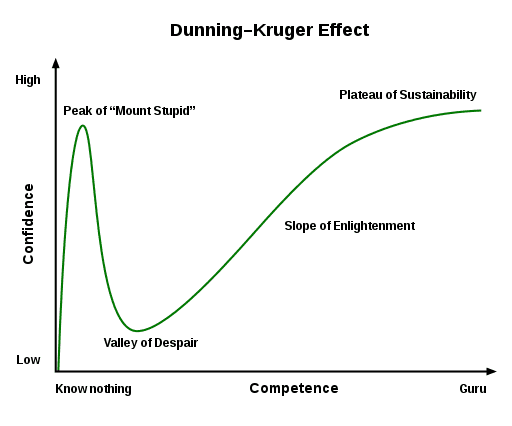As a developer, when I face a new challenge - a new feature to be developed, a bug to solve, a performance improvement - quite often I research for possible solutions. This keep me updated on “what is the community doing?”, and also is a nice way to learn new solutions to solve problems.
And, during those researches, I’ve found a kind of “problem” - everyone has an opinion. Those opinions could be positive or negative on what you’re researching or trying to accomplish. You can find good and bad stuff about every possible techonology in this world - from languages, frameworks, architectures… you name it.
I have my personal opinions too, and also my personal tastes about development - the things I like, things that are easy, things that are good… There’s no problem or issue on it at all. The problem is to have opinion on everything, and being closed to new opinions (not only in development, but in life).
While researching on “what to use to create a personal blog?”, I read several posts talking nice stuff about Gatsby, several posts talking bad stuff about WordPress, not so many posts talking about Jekyll… In the end, I’ve choose Jekyll - because it would suit my needs.
Some of those posts can offer you good arguments, explaining some performance or security issues you may find, or difficulties on creating translations, or even talking about the community which backs the framework, or the learning curve you’ll face… But you can also find posts that offers you bad, cheap arguments, based on personal tastes like “WordPress is outdated” - when nearly 1/3 of the web is powered by WordPress; I bet the person who says it doesn’t know how to work with WordPress, or is just a hater.
Right now, if you google “is Ruby good in 2020”, you’ll find opions talking good and bad stuff about Ruby.
Some developers dislike absoute import on JavaScript, some developers love it (personally I love it). And you’ll find people who talk nice or bad stuff about this “feature”. As content producers, or even as influencers, when we expose a contrary opinion to something we must to justify our position - “why do I dislike it?”.
Because when we expose an opinion, people will absorb and use it as a base on their choices - if it’s a nice exposed, well-justified opinion, people will have a nice base on why they’re doing something that way - or why they’re not doing.
For some people, if they read some bad stuff about React scripting time, React will be bad forever - the problem is being closed to new opinions!
Developers are such unique people - they defend with tooth and nails the things they love, and throw into fire those they hate. I was one of those people, and then I realized that Dunning-Kruger effect was taking its toll on me. When I changed my mind from “code as the main thing” to “value as the main thing”, I stopped to bother about some stupid stuff like “people don’t like WordPress” - if WordPress is delivering value, damn let’s go with WP!

Each project will have its own characteristics, its own implementations and its own maintainers. Of course it’s nice to have a pattern, a boilerplate; but you’ll find this pattern won’t suit all of your projects. Some projects will need more abstraction layers, some of them will have only one - you’ll lose time trying to put the 2 examples in the same “boilerplate box”, and time is something we can’t afford to lose.
I don’t like agile so much. But, if you’re a follower, you may remember the first value preached by the methodology:
Individuals and interactions over processes and tools.
Most of people are eager to discuss about patterns, languages, frameworks, structures and how good/bad a thing is - but I don’t see the same amount of people eager to discuss how a pattern “increased their revenue by 25% compared to the old one”. Discussing code by code is cheap, try to discuss code as a tool to reach a bigger goal and your mind will open.